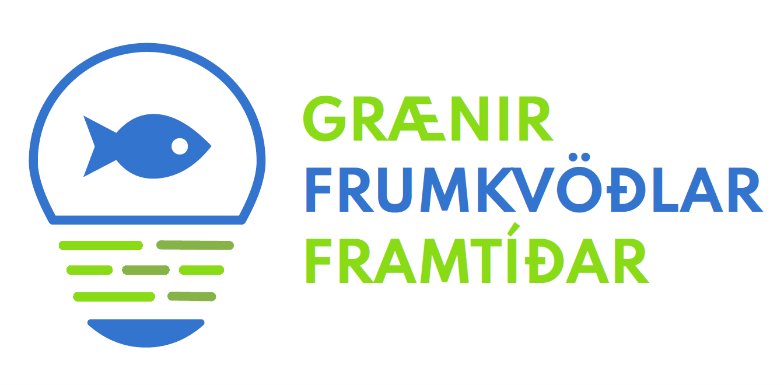At the beginning of June, a new and exciting educational project began at Matís under the name Green Entrepreneurs of the Future. The main goal of the project, which received a grant from the Climate Fund, is to educate Icelandic primary school students about climate and environmental issues, the effects of climate change on the sea and its ecosystem, and not least, the potential impact on the fishing industry and society. The project will also aim to empower primary school students in rural areas by educating them about the importance of innovation and entrepreneurship, not only as a tool in the fight against the climate problem, but also for themselves and their local community.
These days we have news of disasters around the world where climate change is believed to be to blame. Pictures of forest fires, landslides and floods are seen almost daily on national television screens, and we hear news of the latest IPCC report, which includes a clear warning of the dangers of impending climate change. Young people today watch this news coverage almost daily and so-called climate anxiety has become a known phenomenon. This real and logical anxiety, and all the emotions that come with it, need to be discussed, both at home and at school.
Climate change is one of the main challenges facing the world, and the younger generations will not be spared the struggle that lies ahead. One of the most effective tools in the fight against climate change is to educate and empower our young people, and therefore it is necessary to mobilize them and arouse their interest in the issue in the early stages of schooling. It is also extremely important for young people to have the opportunity to discuss their feelings and anxieties. Students should not have to carry their emotions alone, but should be given space to discuss them with their peers and, at the same time, apply methods to empower them. The Green Entrepreneurs of the Future project aims to provide Icelandic primary school students with the knowledge, skills and motivation needed to find solutions to climate-related challenges of the future and implement them, with special emphasis on the sea, marine life and ocean-related innovation. The project will also provide Icelandic primary school teachers with accessible teaching materials, knowledge and skills to bring this important issue into the classroom, where emphasis will be placed on education and empowerment.
Three primary schools are participants in the project, Árskóli á Sauðárkrókur, Grunnskóli Bolungarvíkur and Nesskóli í Neskaupsstaður and the project is based on the oldest classes. After the training and project work in four thematic workshops, students will visit fisheries companies in their home areas and get to know the activities, the environmental challenges that the companies face and the innovation that has taken place.

Finally, students will start the so-called MAKEathon in collaboration with Fab Lab workshops in their hometown. Emphasis will be placed on entrepreneurial and innovative thinking and students will be taught to apply reasoning and new knowledge to identify possible solutions to the environmental challenges within the fisheries sector and put the idea into practice. The N4 television station will finally do its part to spread the message and take part in the project, which will be shown around the middle of next year.
The importance of sustainable innovation in the home area
Sustainable innovation in local communities is extremely important for the status and resilience of smaller communities that rely heavily on the fishing industry. A strong innovation environment, local knowledge and good infrastructure can have an enormous positive impact on the economy, the communities themselves and rural development. Involving young people in rural areas for innovation and entrepreneurship, guided by sustainability and the environment, will not only bring about the ingenuity needed to create new knowledge and solutions in the fight against the climate problem, but it can also have a lot to say about strengthening the economy, economy and communities of smaller municipalities in rural areas.
The objectives of the project are therefore the following:
- To provide students in the upper grades of primary school with a different and exciting education about the nature and effects of climate change, with special emphasis on the sea, its ecosystem and the fishing industry
- To increase students' understanding of the impact that climate change may have on their immediate environment, whether on the environment, the economy or society
- To educate students about the importance of mitigation and adaptation measures as well as the impact and importance of innovation and technological solutions in this connection
- To give students experience and insight into the world of Icelandic entrepreneurs and innovation
- To lay the foundation for fruitful and dynamic innovation work in rural areas where environmental and climate issues are given priority
- To provide primary school teachers with new knowledge, tools and technology to educate students about climate and environmental issues, with a direct connection to their immediate environment
More information about the project can be obtained from Ragnhilda Friðriksdóttir, Matís' project manager, but the project's website will be launched within a few weeks, where news, study materials and video recordings will be available.
